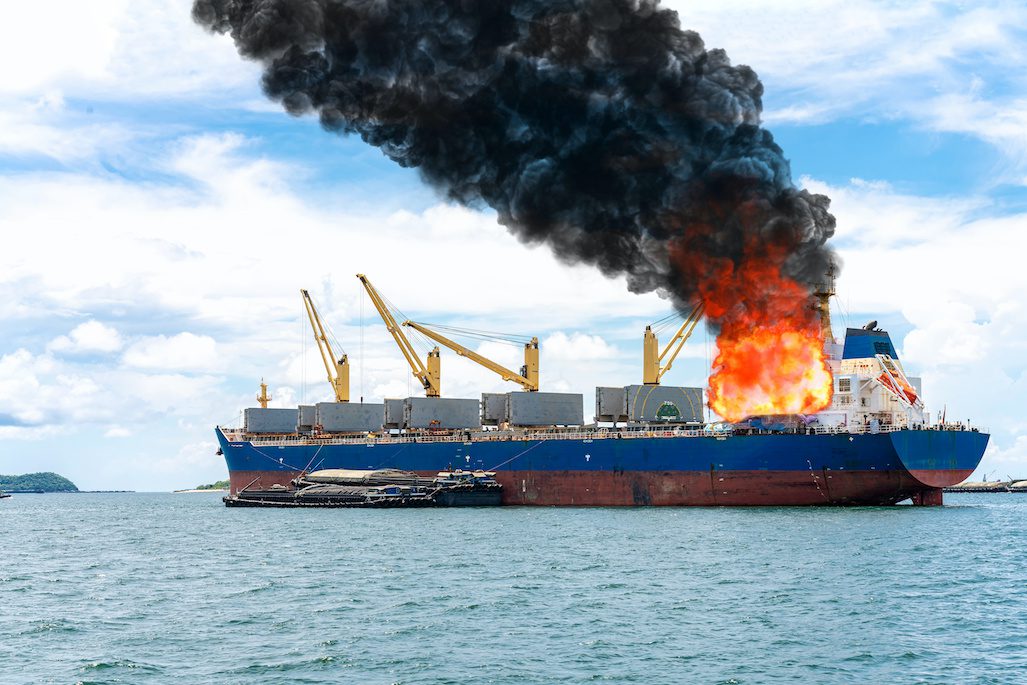Introduction to Maritime Law
Maritime law, often referred to as admiralty law, is a specialized body of law governing nautical issues and private maritime disputes. It encompasses a wide range of matters, including shipping, navigation, waters, insurance, canals, and the transportation of goods and passengers by sea. Given the vastness of the world’s oceans and the critical role maritime activities play in global trade, maritime law is essential for ensuring order and resolving conflicts on the high seas.

The Role of Maritime Law Firms
Maritime law firms are specialized legal practices that focus on issues related to maritime activities. These firms offer a range of services designed to address the unique challenges faced by those operating in the maritime industry. From handling disputes over cargo and ships to ensuring compliance with international maritime regulations, these firms play a pivotal role in facilitating smooth maritime operations.
Historical Background of Maritime Law
Origins of Maritime Law
The origins of maritime law date back to ancient times when seafaring was the primary means of trade and communication between distant lands. Early maritime codes, such as the Rhodian Sea Law and the Laws of Oleron, laid the groundwork for modern maritime law by establishing rules for resolving disputes and regulating maritime conduct.
Evolution of Maritime Law Over the Centuries
Maritime law has evolved significantly over the centuries, adapting to changes in maritime technology, trade practices, and international relations. The development of comprehensive international treaties, such as the United Nations Convention on the Law of the Sea (UNCLOS), has further refined and standardized maritime law, making it more cohesive and universally applicable.
Specializations within Maritime Law
Admiralty Law
Admiralty law is a fundamental component of maritime law that deals with matters such as ship registration, ownership, and maritime liens. It also covers issues related to maritime contracts, torts, injuries, and offenses that occur on navigable waters.
Marine Environmental Law
Marine environmental law focuses on protecting the marine environment from pollution and other harmful activities. This area of law includes regulations aimed at preventing oil spills, managing waste disposal, and safeguarding marine biodiversity.
Maritime Insurance Law
Maritime insurance law pertains to the insurance of ships, cargo, and other maritime interests. It covers the principles and practices related to maritime insurance policies, claims, and disputes, ensuring that stakeholders are adequately protected against various risks.
Maritime Personal Injury Law
Maritime personal injury law addresses injuries sustained by crew members, passengers, and other individuals in maritime contexts. This area of law ensures that those injured at sea receive fair compensation and that safety standards are maintained.
Key Legal Issues Handled by Maritime Law Firms
Ship and Cargo Disputes
Ship and cargo disputes are common in maritime law, involving issues such as damage to goods, delays, and breaches of contract. Maritime law firms work to resolve these disputes through negotiation, arbitration, or litigation.
Maritime Contracts and Agreements
Maritime contracts and agreements, including charter parties and bills of lading, are essential for the smooth operation of maritime trade. Law firms ensure that these contracts are properly drafted, negotiated, and enforced.
Environmental Regulations and Compliance
Maritime law firms help clients navigate complex environmental regulations, ensuring compliance with national and international laws designed to protect the marine environment. They also represent clients in environmental litigation cases.
Crew and Passenger Claims
Claims related to crew and passengers, such as injury claims or disputes over wages, are another critical area of focus for maritime law firms. They work to secure fair settlements and uphold the rights of those working and traveling at sea.
How Maritime Law Firms Assist in Trade and Commerce
Ensuring Compliance with International Regulations
Compliance with international maritime regulations is crucial for maintaining smooth and lawful operations. Maritime law firms help clients understand and adhere to these regulations, avoiding costly penalties and disruptions.
Dispute Resolution and Litigation
When disputes arise, maritime law firms offer dispute resolution services, including mediation and arbitration, to resolve conflicts efficiently. In cases where litigation is necessary, they represent clients in court to achieve favorable outcomes.
Advisory Services for Shipping Companies
Maritime law firms provide advisory services to shipping companies, helping them navigate legal complexities, optimize their operations, and mitigate risks. This includes offering strategic advice on regulatory changes and industry best practices.
Maritime Law and Environmental Protection
Addressing Marine Pollution
Marine pollution is a significant concern in maritime law. Law firms play a crucial role in addressing incidents of pollution, ensuring that responsible parties are held accountable and that remediation efforts are undertaken.
Legal Frameworks for Protecting Marine Life
Protecting marine life involves a complex web of regulations and treaties. Maritime law firms work to enforce these legal frameworks, promoting sustainable practices and safeguarding marine ecosystems.
Case Studies of Environmental Litigation
Examining case studies of environmental litigation reveals how maritime law firms have successfully navigated complex legal challenges to protect the marine environment. These cases highlight the critical role of legal expertise in environmental conservation.
The Importance of Maritime Insurance
Types of Maritime Insurance
Maritime insurance covers a wide range of risks, including hull insurance, cargo insurance, and liability insurance. Understanding the different types of insurance is essential for stakeholders in the maritime industry.
Role of Law Firms in Maritime Insurance Claims
Maritime law firms assist clients in filing and resolving insurance claims, ensuring that they receive fair compensation for losses and damages. They also handle disputes between insurers and insured parties.
Case Studies of Insurance Disputes
Case studies of insurance disputes illustrate the complexities involved in maritime insurance claims and the pivotal role of law firms in achieving resolution. These examples provide insights into effective legal strategies for handling insurance issues.
Challenges Faced by Maritime Law Firms
Jurisdictional Issues
Jurisdictional issues arise due to the international nature of maritime activities. Maritime law firms must navigate the overlapping jurisdictions of different countries and international bodies to effectively represent their clients.
Complexities of International Law
The complexities of international law, including treaties and conventions, pose challenges for maritime law firms. They must stay abreast of legal developments and ensure compliance with a myriad of international regulations.
Technological Advancements and Cybersecurity
Technological advancements and cybersecurity are increasingly important in maritime law. Law firms must address issues related to cyber threats, data breaches, and the use of advanced technologies in maritime operations.
Choosing the Right Maritime Law Firm
Factors to Consider When Selecting a Maritime Law Firm
Choosing the right maritime law firm involves considering factors such as expertise, experience, reputation, and the firm’s track record in handling similar cases. It’s essential to select a firm that aligns with your specific legal needs.
Importance of Expertise and Experience
Expertise and experience are critical in maritime law due to the field’s complexity and specialization. A law firm with a deep understanding of maritime issues and a history of successful cases is invaluable.
Tips for Evaluating Law Firms
Evaluating law firms involves researching their background, reading client reviews, and conducting interviews. It’s important to assess their communication style, responsiveness, and willingness to understand your unique needs.

